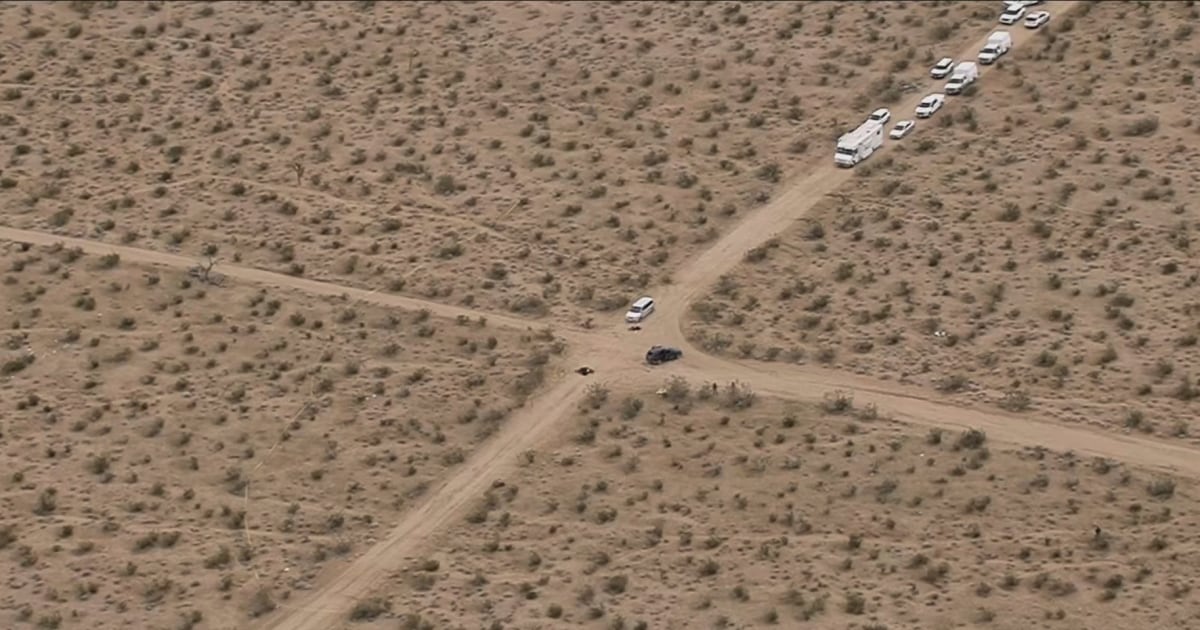By Michael R. Blood and Christopher Weber —
The Associated Press
The killing of six men last week in a remote desert area, which authorities believe was sparked by a dispute over an illegal cannabis business, has put a long-standing problem in California: the thriving underground marijuana market in the spotlight. that does not stop despite the fact that the legalization of some sales sought to put an end to it.
The killings were a tragic reminder of the violence that can come with this illicit activity, including unlicensed grow operations, robberies from legal businesses, and illegal poaching shipments to out-of-state sellers.
“The violence is getting worse.
The stakes are getting higher,” said Jerred Kiloh, a dispensary owner and president of the United Cannabis Business Association, a Los Angeles-based trade group.
The man added that many of the members of his organization have suffered one or more robberies, sometimes committed by repeat thieves.
“We continue to talk about a problem that we know persists,” Kiloh said,
“but we are not doing anything about it.”
Six people were found dead in the Mojave Desert in California.
NBC Los Angeles
Authorities found the bodies on January 23 in the Mojave Desert, outside the sparsely populated community of El Mirage.
Five suspects of Hispanic origin were arrested, each of whom faces multiple charges, including six felony counts of murder.
Two of them pleaded not guilty and the remaining three were pending court appearances.
All remain in prison without bail.
The area where the bodies were found, about 50 miles (80 kilometers) northeast of Los Angeles, is known for illicit cannabis operations.
“This is a problem that is not really being talked about,” lamented San Bernardino County Sheriff Shannon Dicus, calling on lawmakers to reform cannabis laws to “maintain legalization but return harsh sentences to consumers.” of illegal marijuana.”
The murders came at a time when California's heavily regulated legal cannabis industry continues to struggle while underground businesses sometimes operate in plain sight.
California has long been
the country's largest producer of cannabis
, prized for its potent crops.
Voters in 2016 passed Proposition 64 to legitimize and tax this multibillion-dollar industry, and the law declared that widespread legal sales would “cripple the black market.”
The current Democratic governor, Gavin Newsom, who was lieutenant governor at the time, said the law would be a “game changer.”
Legal sales for adults faced difficulties from the beginning.
The state's illegal market had flourished for decades.
Since the end of Prohibition in 1933, there had not been an attempt to convert such a vast illegal economy into a legal one.
Most consumers have continued to purchase marijuana on the illegal market, where they avoid taxes that can approach 50% in some communities.
Many California cities did not establish legal markets or ban commercial marijuana activity.
Law enforcement, for its part, has been unable to keep pace with the expansion of illicit sales and cultivation.
A person looks at a cannabis flower at a legal sales location in Los Angeles, California.
PATRICK T. FALLON / AFP via Getty Images
Proposition 64 reduced the potential criminal penalties for growing and selling cannabis from felonies to misdemeanors, punishable by a fine of
up to $500 and six months in jail.
There are no active proposals in this year's Legislature to increase criminal penalties.
Dicus assured that in 2023 his department carried out 411 search warrants for illegal marijuana cultivation sites throughout the county and recovered $370 million.
Deputies found 655,000 plants and 74,000 pounds (about 33,565 kilograms) of processed marijuana and 14 laboratories producing honey oil, a potent cannabis concentrate.
Eleven search warrants were served directly in the desert area where the murders occurred.
“The reality is that Proposition 64, in the fine print, took illicit marijuana and moved it from a felony to a misdemeanor.
And the reality of this is that by allowing it we have unleashed a plague in California,” Dicus added at a press conference on Monday.
Cannabis attorney Griffen Thorne noted that in 2023, state investigators executed 24 search warrants against illegal operations between October and December, and 188 for the entire year, too little to disrupt a vast underground market that dwarfs the legal one.
Thorne added that violence is a foreseeable consequence of illegal activity and that “those kinds of things are going to continue to happen as long as the state allows the illegal market to grow unchecked.”
A legislative proposal just approved by the state Senate seeks to expand the power of state and local agencies to confiscate property and equipment associated with illegal crops.
The desert homicides were not the first over disputes over cannabis.
In 2020, seven people were fatally shot at an illegal marijuana grow in a rural town in neighboring Riverside County.
More than 20 people lived on the property, which had several makeshift homes used to make honey oil.
Although marijuana remains a controlled substance under federal law, 38 states have legalized medicinal use and 24 have legalized sales for adult use.
Kiloh and other industry experts predicted that problems will worsen as legitimate operators, unable to make money, withdraw from the sector.
Major cannabis companies have previously warned that the state's legal industry could collapse without tax cuts and an expansion of retail sales.
“It is tragic, and I think it is a direct reflection of what this industry and this Government have done,” Kiloh said.
“We have invited organized crime to return to California and compete for an illicit market.”

